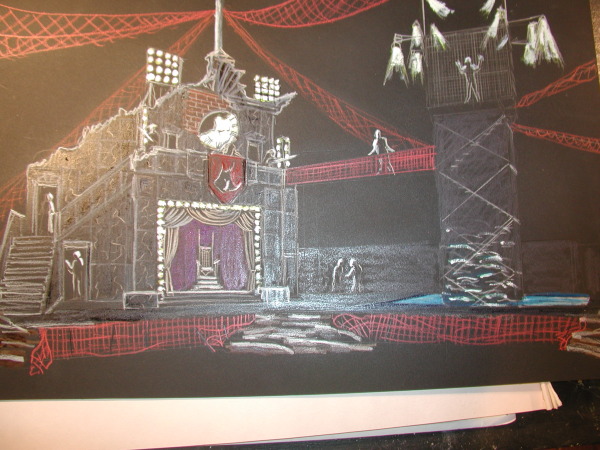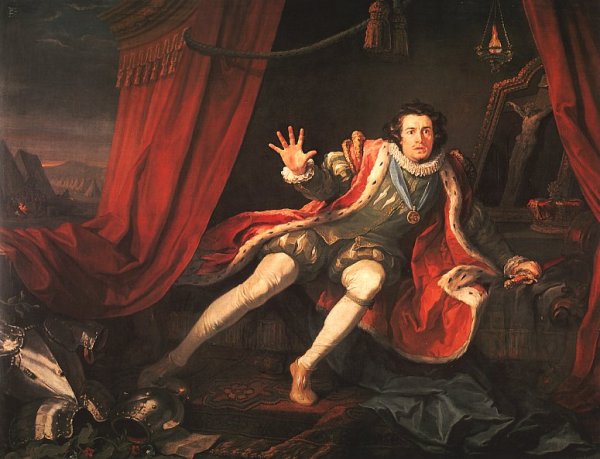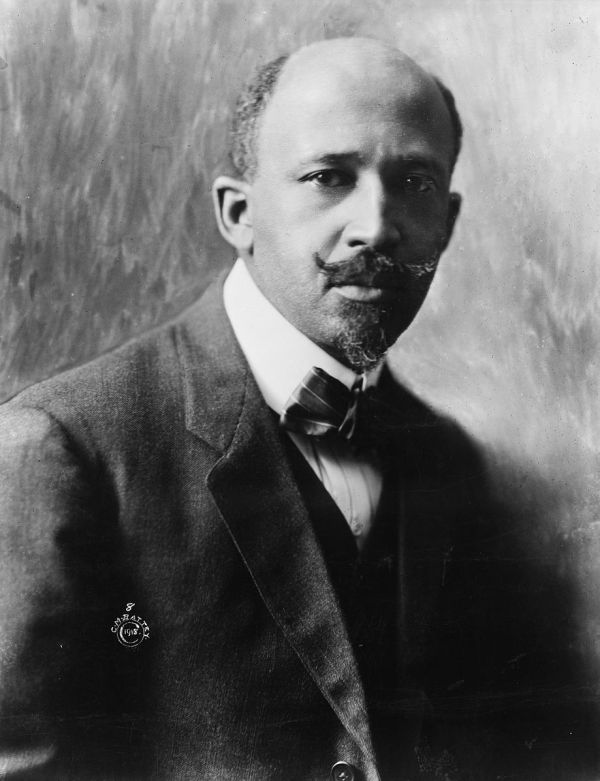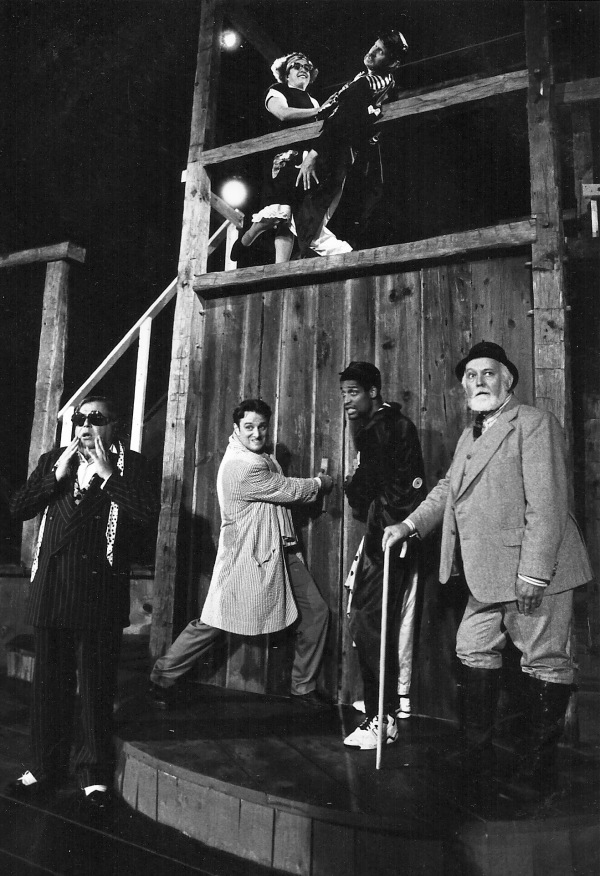
Notes
Notes: Richard III

David Garrick as Richard III, William Hogarth, 1745
Director’s Notes
Richard is a sociopath.
Richard is a comic book villain.
Richard is a nihilist-comedian.
A terrific performer.
Audiences love him.
His act? Revenge.
Myth: Richard of Gloucester spends two years in his mother’s womb and emerges as a monster with hair and teeth.
Fact: a malformed baby meets a malevolent world. His mother despises him and tells him so every chance she gets. His brothers torment him for his disfigurement. As the years go by, in order to survive, Richard puts on a cheerful face and does the dirty work. He is finally accepted as one of the boys. But Richard can no more forget his persecution than he can forget the constant pain of his body. Revenge burns in his soul.
This play is almost a romp of hatred and violence, but underneath the dark psychological comedy lies a simple plea for kindness.
Notes: The World Beyond the Hill: the Life and Times of W.E.B. Du Bois

Director’s Notes:
This is the ninth show we have done in the three years of the high school. In the past we have done shows based on interviews with members of the community (People Talk), anthology material (Animalia), original work by students (The Tennis Court Oath Daytime Drama Spectacle Parade), as well as combinations of plays, and plays that involve formal language. This show has elements of each of these, either in forming the material or in discovering the action of the play.
A kid from Great Barrington graduates from the top of his class and goes on to become one of the great thinkers and activists of our time. He is the town’s first river advocate, writes twenty-three books and thousands of articles, in varying styles and genres, and makes significant contributions to the fields of sociology and philosophy. He lays the groundwork for the civil rights movement and is consulted by leaders of movements and nations. He is black and outspoken, and naturally falls afoul of the Joe McCarthys and J. Edgar Hoovers of the time. He is hounded and blacklisted, discredited to such an extent that even his own hometown remains largely mute about its preeminent native son.
I remember my first arrival in the Berkshires by bus, passing a small sign about DuBois near a grove of trees. I never found the sign again, and thought it must have been my imagination, until I was asked to join the school’s celebration of his work. Since then many of us have begun to see traces of DuBois everywhere, patiently revealed by a small number of people who have long cherished his memory. If we can share a small part of the bittersweet joy of this discovery, that will count as a good thing.
Notes: Comedy of Errors

It has been an odd pleasure to mount the Comedy of Errors. In the same way one forgets that locking the house without a key to get back in will lead to problems at midnight, dragging oneself home for a cup of Sleepytime tea and a quick overnight nap after a long day of rehearsals and scattered obligations, one forgets that Shakespeare’s plays insinuate themselves into our lives like stray cats, or bedbugs. The play is delightful because it is full of the aggravations that drive us crazy (“but soft, my door is locked…”), and we love to see other people tear their hair out over small grievances. Not only out of our perverse nature, though that cannot be totally discounted, but also because we see that we go nuts over the things that don’t have any consequence. Over things of weight, like the hanging of a foreigner, or a merchant’s ruthlessness on his way to Persia (Iraq), we stay pretty calm. As we should, in order to be steady when things get rough. Meanwhile, it’s not a bad thing to laugh at our intricate follies.
Once again, many thanks are due to people whose acts of kindness and generosity make these hare-brained projects possible. Exemplary among these is Charley Clemmons, who lent his truck so we could pick up the set pieces from Shakespeare & Company on a Saturday two weeks ago when there were mountains of snow to be plowed before evening.